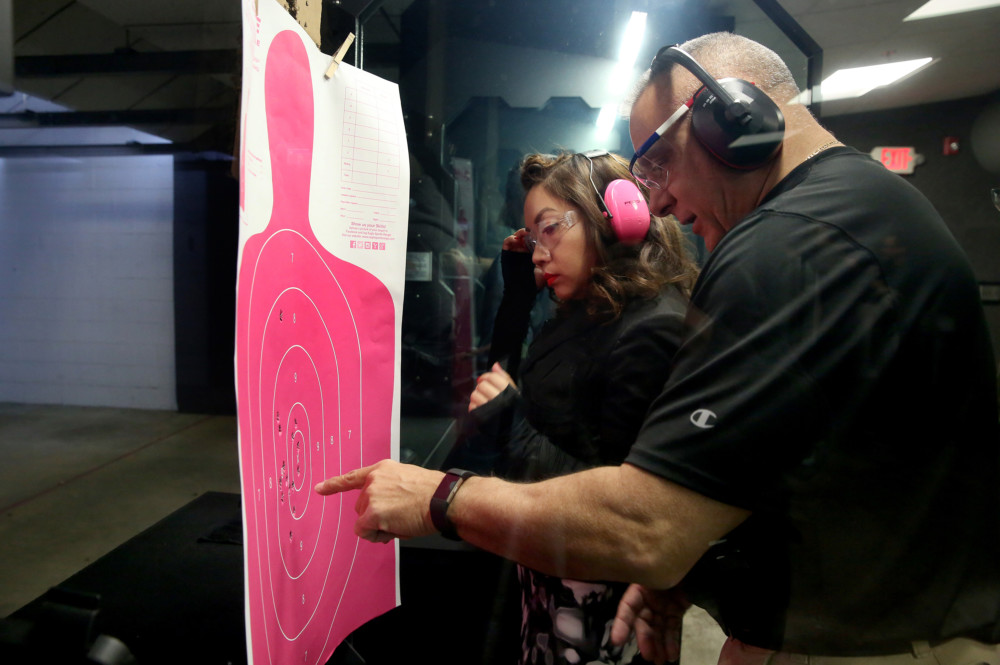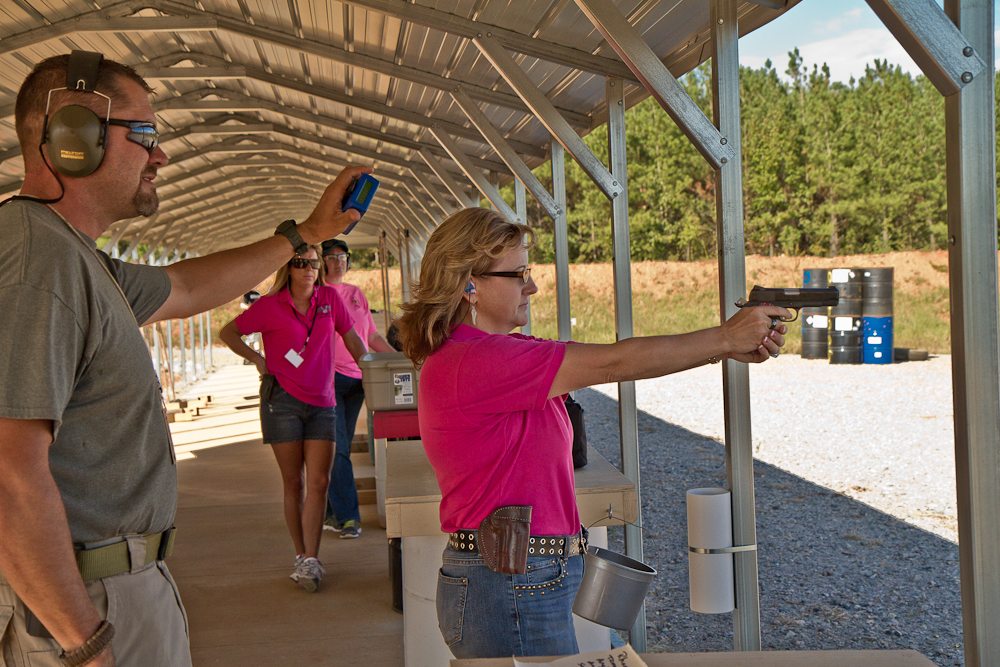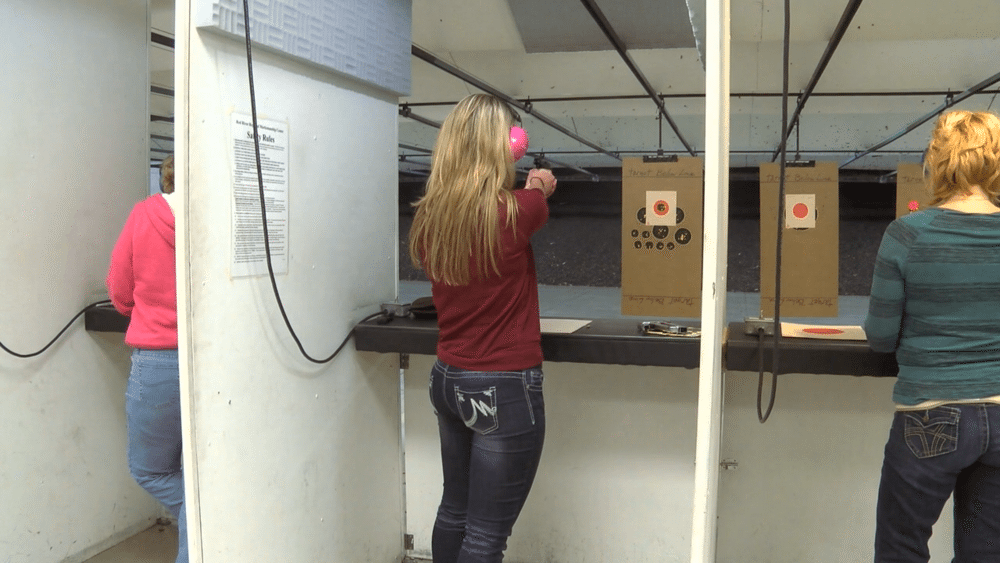By Alison Bowen
Chicago Tribune
WWR Article Summary (tl;dr) After multiple violent incidents while showing properties Chicago real estate agent Sonia Figueroa was so fed up she enrolled in a concealed carry course.
CHICAGO
Sonia Figueroa was spooked. So she decided to get a gun.
The Century 21-affiliated real estate broker has been working in Chicago for more than a decade. She knows the basics of staying safe, tactics many in the field said they follow: Let someone know where you are, don’t post too many personal details online.
But this year, three unsettling incidents made Figueroa think twice about protecting herself. In February, while conducting a Facebook Live video from a vacant lot, Figueroa said she was attacked by a pit bull. Her screams were broadcast.
Then, in April, her Portage Park office was robbed. Three teenagers issued threats and took her purse, she said.
The next month, in May, while showing a client a vacant property in Avondale, Figueroa heard footsteps and conversation on the second floor. She believes it was a drug deal. All she knows for sure is that a man began running down the stairs toward where she was standing.
“I told the client, ‘Oh my God, we’ve gotta run for it,'” she said.
She and her client weren’t harmed, but Figueroa was fed up.
So she enrolled in a concealed carry course.
After 13 years in the industry, “I never would have thought I would be here right now, talking about guns,” she said.
But staying safe in a field that involves visiting vacant homes and being present at publicly advertised events is something many in the real estate business said they often consider.
A National Association of Realtors survey on members’ safety released in August found many reported feeling fear while hosting open houses or otherwise showing vacant or model homes.
In the 2017 Realtors report, 25 percent of men and 44 percent of women said they had experienced a situation that made them fear for their personal safety or the safety of their personal information. About half (52 percent of men, 57 percent of women) said they carry weapons; the most common were pepper spray, carried by 19 percent of agents, followed by guns, which 16 percent carried. Others toted pocket knives and stun guns.
“The list just keeps getting longer of what tools people are using,” said Jessica Lautz, managing director of survey research for the Realtors group.
Women were more likely to have experienced a scary situation, and are more likely to use a safety app or follow notification procedures with friends or family. Forty-eight percent of women follow these safety strategies, compared with 34 percent of men.
Many said growing a business in a competitive industry like real estate often creates the temptation to be the first, to respond, to host an open house, even if something feels off.
“It’s really easy to get caught in the emotion of that opportunity and wanting to help people quickly,” said Sotheby’s International Realty broker Stephanie LoVerde.
Real estate organizations offer guidance; just this September, the Chicago Association of Realtors hosted a crime-prevention seminar and self-defense class. The group issues primers on hosting safe open houses that urge agents to use tactics such as securing valuables, walking behind visitors instead of in front of them and knowing cellphone signal strength in a home’s various rooms.
The Chicago Realtor group also suggests that realty agents keep their phones in hand and find an out, like calling one’s office, if a situation seems problematic.
During an open house, a sign-in sheet for visitors tracks who’s inside. And when closing up, it might behoove an agent to say something like, “Mike, go check the other bedroom,” even if there’s no Mike. Before leaving, it’s best to work back to front, checking rooms from the home’s rear first then working forward and leaving through the front door.
“You just never know what can happen,” Figueroa said.
When she began the firearm class in November, she said the instructor told her she was the second broker to come in.
The first, the instructor told her, had been raped.
“I want to choose and have control of my own destiny,” she said, “because at this point, I should have been dead.”
Some agents mention crimes like the 2014 kidnapping and murder of Beverly Carter, who prosecutors said was killed in Arkansas after a duo set up a fake appointment with Carter to see a property.
“That shook me up big time,” said LoVerde, a broker since 2013. At the start of her career, she went to houses and apartments everywhere.
“I would work with anyone that had a pulse,” she said, “without even considering the position that I was putting myself in.”
One night sticks out. She had gone to an unfamiliar area at night, and found herself looking for the lock box in snow and black ice.
buy lexapro online www.mobleymd.com/wp-content/languages/new/lexapro.html no prescription
“I wasn’t comfortable, I wasn’t familiar with my surroundings,” she said. “I had no business being there at all at 8 o’clock at night by myself.”
Now, she’s more careful about her physical and virtual behavior. On her social media accounts, a necessity for agents to post listings and draw attention to available properties, she used to post things like, “Come visit me,” or “I’ll have cookies.” Now, she keeps it less personal with professional invitations from her company.
“I do think about that quite a bit,” she said. “No sale is worth your life. No amount of money is worth your safety.”
Also, she doesn’t work with anyone who has not been preapproved for a home loan. “To put that check in place, for me, has been really helpful,” she said. “It’s not about how much they can afford. It’s is this person who they say they are? And are they intending to actually spend time with you for the right reasons?”
Debbie Maue, vice president of sales at Sotheby’s International Realty, has been in the business nearly three decades. She advises agents to let the doorman know they are showing a property, if there is a doorman, and to create an emergency code with one’s office. If an agent calls the office and asks to, for example, pull the red folder, that is a signal for help. She also tells agents to lock a home’s door so guests have to knock.
Once, Maue said, her husband came to an open house when a man refused to leave. After that, she started keeping a knife under papers on her desk.
Apps also are helping agents stay safe. Forewarn helps agents check if potential clients have a history of violent crime; Trust Stamp, through the national Realtor association’s technology accelerator program, also helps realty agents authenticate consumers’ identities. The Chicago Realtor group recommends Homesnap Safety Timer, free to agents and brokers. The app allows an individual to set a timer tied to a GPS location, such as a home listing. When time’s up, a message is sent to the agent’s emergency contacts.
Despite potential dangers, Figueroa’s enthusiasm for her career hasn’t waned. Quitting was never an option.
“I really love it, and I’ve been doing it for so many years,” she said. “I can’t see myself doing anything else.”

















































































































































































































































































































































































